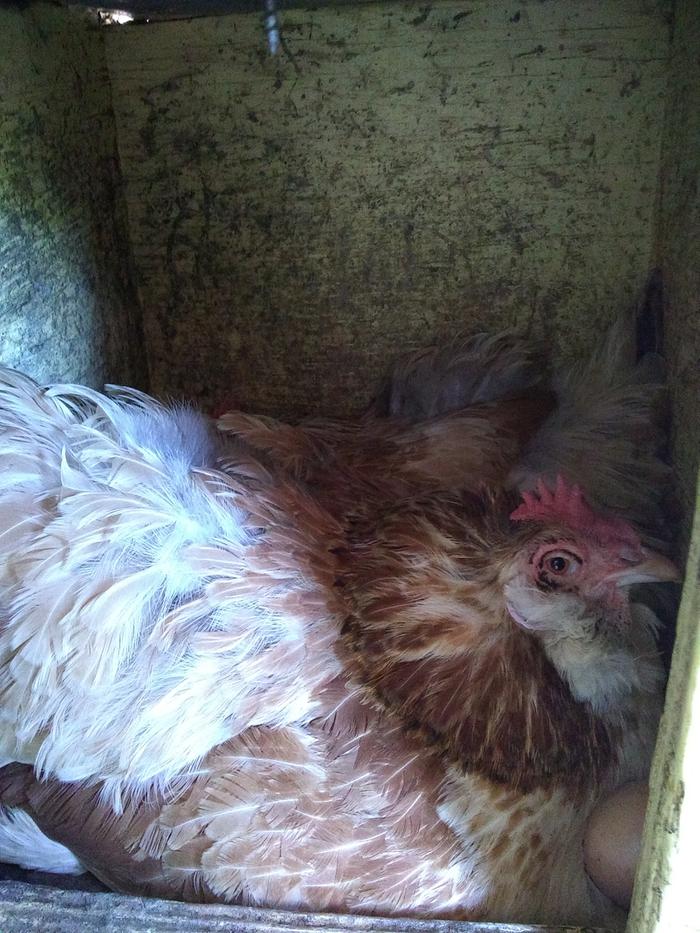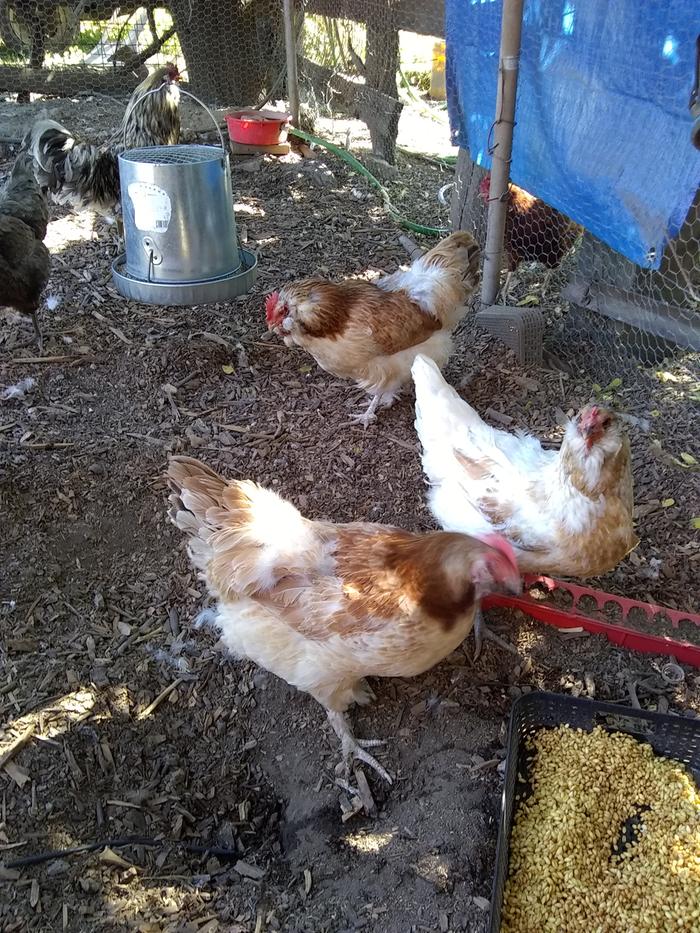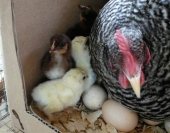
 5
5




“We can complain because rose bushes have thorns, or rejoice because thorn bushes have roses.” — Abraham Lincoln
 9
9




"Study books and observe nature; if they do not agree, throw away the books." ~ William A. Albrecht
 13
13




I make a Maple Syrup instructional movie! Check it out HERE
SKIP books, get 'em while they're hot!!! Skills to Inherit Property
See me in a movie building a massive wood staircase:Low Tech Lab Movie
 3
3




“We can complain because rose bushes have thorns, or rejoice because thorn bushes have roses.” — Abraham Lincoln
 7
7




Nick & Jane
You are most welcome to visit our blog at ALEKOVO.COM.
 2
2




“We can complain because rose bushes have thorns, or rejoice because thorn bushes have roses.” — Abraham Lincoln
 4
4




$10.00 is a donation. $1,000 is an investment, $1,000,000 is a purchase.
 3
3





 1
1




Jen Fan wrote:We're in off-grid in zone 3 and I had broodies hatching out chicks in late December. They a ll do just fine with a competent broody. We don't supplement heat. Mama is warm enough for them all, as long as they're out of the elements. I put broodies with chicks in a greenhouse to keep them out of of the snow and wind. If you take the eggs they all die. If you let them hatch, maybe some die, maybe some don't. Best case you get some free chickens
$10.00 is a donation. $1,000 is an investment, $1,000,000 is a purchase.
 3
3




Visit Redhawk's soil series: https://permies.com/wiki/redhawk-soil
How permies.com works: https://permies.com/wiki/34193/permies-works-links-threads
 3
3




Jay Angler wrote:We have "professional egg laying hens" and every 2-3 years one goes broody. If they manage to hatch out the eggs, they've always done a fine job of mothering them despite their genetics. That said, I've always moved them early specifically to stop other birds from sneaking extra eggs in the nest and to give them less distraction that might drive them off the nest.
$10.00 is a donation. $1,000 is an investment, $1,000,000 is a purchase.
 3
3




“We can complain because rose bushes have thorns, or rejoice because thorn bushes have roses.” — Abraham Lincoln
 3
3




Jen Fulkerson wrote:I want to thank you all for your good advice. I decided to let mother nature take control. I put up a board and kept and eye for chicks, so they wouldn't fall to there death, but the hen has given up too soon. No chicks hatched. I was kind of looking forward to chicks, but we have more then enough chickens, and I really didn't want to have to deal with more roosters. One is more then enough. So I'm ok with the outcome. It's probably for the best. Thank you all again.
$10.00 is a donation. $1,000 is an investment, $1,000,000 is a purchase.
 4
4






.jpg)
“We can complain because rose bushes have thorns, or rejoice because thorn bushes have roses.” — Abraham Lincoln
 5
5




$10.00 is a donation. $1,000 is an investment, $1,000,000 is a purchase.
 4
4




“We can complain because rose bushes have thorns, or rejoice because thorn bushes have roses.” — Abraham Lincoln
 3
3




Jen Fulkerson wrote:Thank you Cecile. I don't sell the eggs. I am ok either way things go, chicks or no. All the boxes are on the same level, about the same size, same amount of light. I think I will clean the boxes today, and see if that will encourage the other chickens to lay in a different box. Any advice about the two hens brooding in the same box? It has cooled down a bit today, but I worry they will overheat. Plus if the chicks hatch will there be enough room? The boxes, more like stalls, are about 14 inches wide by about 18 to 20 inches deep. There is a 2 inch lip on the bottom at the entrance. The boxes are in a row, they are in the last box. The eggs are from all the chickens. I'm not sure how they aren't braking the eggs now.
Should I make a couple of boxes, and move and separate the nests, and eggs? I have auto waters, and feeder, and I give the chickens fermented grains once a day. I talk to them. They use to like me until I had to start defending myself from the rooster. Now I always carry a stick when I go into the chicken yard. Thank goodness I rarely have to use it, most of the time when he starts to get aggressive all I have to do is point the stick at him and say not today, and he will back off. But if I don't have my stick, he will nail me every time. Now the chickens are leery of me. I know he is just doing what he is hard weird to do, but the emotional side of me gets my feelings hurt because I have always been kind and cared for them. Sorry off subject. The point I was trying to make is I try to just let nature be, not interfere. That being said I don't want harm to come to them because I did or didn't do something. Thanks for your help.
$10.00 is a donation. $1,000 is an investment, $1,000,000 is a purchase.
 1
1




“We can complain because rose bushes have thorns, or rejoice because thorn bushes have roses.” — Abraham Lincoln
 1
1




Jen Fulkerson wrote:Thank you for your suggestions with the rooster. It does bum me out. I would like all the chickens to like me. At first I didn't know he was a rooster, he was bought at the feed store as a hen. I didn't start carrying the stick until one day I was bringing compost into the pile which is in the chicken yard, and he nailed me in the back. It didn't hurt because he was young enough the spurs weren't very big or sharp yet. I was very upset that day, even though I knew it wasn't likely, I hopped he would be nice, or at least not mean. I don't want you to think I go around hitting him with the stick. In a year I have only had to use it twice, both times it was mostly to give myself distance rather then to hit. I don't want to hurt him, as much as it upsets me I know he is just being a rooster. I have never thought about giving him treats, maybe I will try that. I do always make sure he gets his share. We have a lot of walnut trees, in the fall I will crack walnuts and give them to the chickens, and make sure he got his share.(they Love Walnuts) When I feed them I throw scratch in the chicken yard, and they all run out to eat that while I do what needs to be done. One of the times he attacked me was in the coop, so I just make sure we aren't in the coop together.
The height of the box is about 14 to 16 inches high. There are a ton of eggs in the nest, all the hens are laying in there everyday. I'm only getting 1 egg a day. I am finding more eggs in the yard, mine and the chickens. My biggest concern is the hens overheating. I understand there body temp raises when they are brooding, then the temp is high 90's and two hens in a small area, it can't be good. I lost a hen to the heat once and felt terrible and swore it would never happen again. Not if I could help it. I appreciate all the suggestions and advice. No matter how much you know there is always something to learn. Thanks.
$10.00 is a donation. $1,000 is an investment, $1,000,000 is a purchase.
 2
2




“We can complain because rose bushes have thorns, or rejoice because thorn bushes have roses.” — Abraham Lincoln

|
What's that smell? I think this tiny ad may have stepped in something.
3D Plans - Tiny House Cob Style Rocket Mass Heater
https://permies.com/t/193730/Plans-Tiny-House-Cob-Style
|



